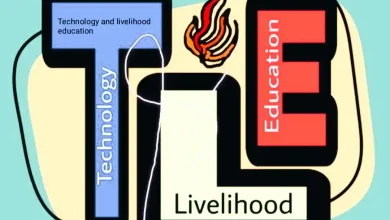How to Get a First Class Degree at a University: Comprehensive Guide
Achieving a first-class degree at university is a goal that many students aspire to. Not only does it represent academic excellence, but it also opens doors to numerous opportunities, from prestigious graduate programs to high-paying job offers. But how exactly can you attain this coveted achievement? Let’s break it down step by step.
The highest honors degree you may get at a university is a first-class (or first) designation. It is given to students who have regularly performed well in their coursework. Although earning a first-class degree might be difficult, it is undoubtedly doable with effort and commitment.
In the UK, a first-class university degree makes you more proficient and improves your ability to perform work to a perfect standard.
To get a first-class degree at University, you’ll need to achieve an average of 70 % or above overall marks. Average marks are calculated by dividing the coursework, presentations, projects, exams, class tests, etc., so you must aim for the best grades throughout the University.
Table of Contents
Here are some tips on how to get a first class degree at University:
- Attend all of your lectures and seminars. This may seem obvious, but it is essential to be present in class to learn from your lecturers and tutors. Attending lectures and workshops will also help you stay on top of the course material and identify areas where you need extra help.
- Participate in class discussions. Participating in class discussions is a great way to learn from your peers, demonstrate your understanding of the course material, and impress your lecturers and tutors.
- Start your assignments early. Be sure to start working on your assignments before the last minute. This will give you plenty of time to research, write a well-argued essay, or complete a project to a high standard.
- Proofread your work carefully before submitting it. Check your work for grammar, spelling, and punctuation errors. Ask a friend or family member to proofread your work.
- Get feedback from your lecturers and tutors. Be bold and ask your lecturers and tutors for feedback on your work. They can tell you what you are doing well and where to improve.
In addition to the above tips, there are a few other things you can do to increase your chances of getting a first-class degree:
- Choose your modules wisely. Make sure to pick ones that you are interested in and that you are good at. Avoid choosing modules you think will be easy, as these will likely be less competitive.
- Read widely. Don’t just rely on the course textbooks. Read other books, articles, and journals on your subject area. This will help you better understand the course material and develop original ideas for your assignments and essays.
- Join a study group. Studying with other students is a great way to stay motivated and learn from each other. You can discuss the course material, help each other with assignments, and practice for exams.
- Take breaks. To avoid burnout, it is essential to take breaks from your studies. Ensure you sleep well, eat a healthy diet, and exercise regularly.
Getting a first-class degree is not easy, but hard work and dedication make it possible. Following the tips above can increase your chances of achieving your academic goals.
Here are some additional tips that may be helpful:
- Improve your time management abilities. This is crucial for college students since they have many obligations to balance. Make sure you plan your study time and adhere to it as closely as possible.
- Learn how to take helpful notes. This will help you recall course information and revise it more effectively.
- Utilize the tools provided by your University. A library, study center, and other services are often offered to university students. To get the most out of your study, be sure to utilize these resources.
- Never hesitate to seek assistance. If you struggle with any element of your study, be reassured to seek help from your professors, tutors, or fellow students.
Getting a first-class degree at University may be more straightforward.
Understanding the Requirements
Before discussing study techniques and time management strategies, it’s crucial to understand what a first-class degree entails. Different universities have varying grading systems, but a first-class degree is generally awarded to students who achieve the highest academic performance.
University Grading System
Each institution has a grading system, but a first-class degree usually requires an overall 70% or above mark. Familiarizing yourself with your university’s specific requirements and grading criteria is essential.
Understanding the Criteria
- Grade Requirements: Typically requires a percentage above 70% or equivalent GPA.
- Assessment Methods: Exams, coursework, practicals, and participation.
- Weightage of Modules: Understanding the importance of different modules and their contribution to the final grade.
Choosing the Right Course and University
- Interest and Passion: Choose a subject you are genuinely interested in.
- University Reputation: Consider the university’s ranking and its resources.
- Course Structure: Evaluate the flexibility, assessment methods, and support systems.
Effective Study Habits
Time Management
- Creating a Study Schedule: Plan your semester.
- Balancing Studies and Extracurriculars: Prioritize tasks and avoid over-commitment.
- Setting Goals: Short-term and long-term academic goals.
Active Learning Techniques
- Note-Taking Strategies: Cornell method, mind maps, and summaries.
- Engaging with the Material: Active reading, questioning, and discussion.
- Using Technology: Educational apps, online resources, and digital planners.
Maximizing Lecture and Seminar Benefits
Pre-Lecture Preparation
- Reading Materials in Advance: Familiarize yourself with the topic.
- Formulating Questions: Prepare questions to clarify during the lecture.
During the Lecture
- Active Participation: Engage in discussions and ask questions.
- Effective Note-Taking: Highlight key points and concepts.
Post-Lecture Review
- Reviewing Notes: Summarize and organize notes.
- Further Reading: Supplementary materials to deepen understanding.
Utilizing University Resources
- Library: Access to books, journals, and study spaces.
- Online Databases: Academic journals and e-books.
- Study Groups and Peer Support: Collaborate and learn with peers.
Effective Revision Strategies
- Creating a Revision Timetable: Allocate time for each subject.
- Practice Exams: Work on past papers and sample questions.
- Mind Maps and Flashcards: Visual aids to summarize and recall information.
Handling Assignments and Coursework
- Understanding the Requirements: Carefully read assignment briefs.
- Research and Planning: Thorough research and structured planning.
- Drafting and Proofreading: Multiple drafts and careful proofreading.
Excelling in Exams
Exam Preparation
- Mock Exams: Simulate exam conditions to build confidence.
- Memory Techniques: Mnemonics, acronyms, and visualization.
- Healthy Lifestyle: Balanced diet, regular exercise, and adequate sleep.
During the Exam
- Time Management: Allocate time for each question.
- Answering Strategies: Start with more straightforward questions and plan longer answers.
- Staying Calm: Techniques to manage stress and anxiety.
Seeking Feedback and Continuous Improvement
- Regular Feedback: Use feedback from assignments and exams to improve.
- Office Hours and Tutorials: Utilize faculty office hours for clarification and guidance.
- Self-Assessment: Reflect on performance and identify areas for improvement.
Balancing Academic and Personal Life
- Stress Management: Mindfulness, hobbies, and relaxation techniques.
- Social Support: Maintaining relationships and seeking support when needed.
- Time for Yourself: Ensuring personal time to recharge and stay motivated.
Utilizing Technology for Academic Success
- Educational Apps: Tools for organizing notes, scheduling, and study aids.
- Online Courses and Webinars: Supplement your learning with online resources.
- Collaboration Tools: Platforms for group projects and study sessions.
Maintaining Motivation and Overcoming Challenges
- Setting Achievable Goals: Break down tasks into manageable parts.
- Positive Mindset: Stay positive and resilient through challenges.
- Reward Systems: Treat yourself for achieving milestones.
Engaging in Extracurricular Activities
- Skill Development: Enhance skills that complement your studies.
- Networking Opportunities: Build connections with peers and professionals.
- Time Management: Balance between academics and extracurricular activities.
Expert Insights
- Advice from Academics: Tips and experiences from professors and lecturers.
- Successful Students’ Stories: Learn from the experiences of high achievers.
- Career Counselors’ Tips: Guidance on how to leverage your degree for career success.
Effective Time Management
Time management is the cornerstone of academic success. Balancing your studies, extracurricular activities, and personal life can be challenging, but with a structured approach, it’s achievable.
Creating a Study Schedule
Draft a weekly study schedule that allocates specific lectures, study sessions, and relaxation times. Prioritize tasks based on deadlines and difficulty, giving ample time to subjects requiring more focus.
Balancing Academics and Extracurriculars
While academics are crucial, extracurricular activities can enrich your university experience and improve your time management skills. Find a balance that allows you to excel in both areas without burning out.
Mastering Study Techniques
Effective study techniques can significantly improve academic performance. Employ strategies that enhance understanding and retention.
Active Learning Strategies
Active learning involves engaging with the material through discussions, practice problems, and teaching concepts to others. This approach is more effective than passive reading.
Note-Taking Methods
Develop a note-taking system that works for you, whether the Cornell Method, mind mapping, or digital note-taking. Organized notes are more accessible to review and help reinforce learning.
Utilization of Study Groups
Study groups can provide diverse perspectives and enhance understanding. Collaborate with peers to discuss complex topics, share notes, and quiz each other.
Leveraging University Resources
Universities offer a wealth of resources designed to support your academic journey. Please make the most of them to boost your performance.
Academic Advising
Regular meetings with an academic advisor can provide personalized guidance, helping you stay on track with your studies and career goals.
Library and Online Resources
Utilize the library’s vast collection of books, journals, and online databases. These resources are invaluable for research and expanding your knowledge.
Workshops and Seminars
Attend workshops and seminars offered by your university. These sessions often cover topics like essay writing, research methods, and exam strategies, providing you with additional skills and insights.
Engaging in Class
Active engagement in class can significantly impact your understanding and retention of material.
Importance of Attendance
Regular attendance ensures you get all the essential information and demonstrates your commitment to your studies.
Participating in Discussions
Engage in class discussions to deepen your understanding of the subject and develop critical thinking skills. Asking questions and sharing insights can help you stand out from your professors.
Building Relationships with Professors
Establishing a rapport with your professors can be beneficial. They can offer valuable advice, references, and even research opportunities.
Developing Critical Thinking Skills
Critical thinking is essential for academic success. It involves analyzing information objectively and making reasoned judgments.
Analyzing and Evaluating Information
Practice evaluating sources critically, identifying biases, and distinguishing between fact and opinion. This skill is crucial for writing essays and conducting research.
Critical Reading Techniques
Employ techniques such as annotating texts, summarizing paragraphs, and questioning the material to enhance comprehension and retention.
Problem-Solving Exercises
Engage in exercises that challenge your problem-solving abilities. This could include puzzles, case studies, or practical applications of theoretical concepts.
Effective Assignment Strategies
Assignments are a significant component of your grade. Approach them strategically to maximize your performance.
Understanding Assignment Requirements
Before starting an assignment, thoroughly read the instructions and understand what is expected. Clarify any doubts with your professor.
Research and Preparation
Conduct thorough research using credible sources. Take detailed notes and organize your information logically.
Writing and Proofreading
Write clearly and concisely, adhering to the required format. Proofread your work multiple times to eliminate errors and ensure clarity.
Exam Preparation Tips
Exams can be daunting, but with the proper preparation, you can excel.
Revision Techniques
Use revision techniques like flashcards, mind maps, and summarizing notes. Focus on understanding concepts rather than memorizing facts.
Practice Tests
Take practice tests to familiarize yourself with the exam format and identify areas that need improvement.
Stress Management
To stay calm and focused during exams, practice stress management techniques such as deep breathing, meditation, and exercise.
Maintaining a Healthy Lifestyle
A healthy body supports a healthy mind. Take care of your physical and mental wellbeing to enhance your academic performance.
Importance of Physical Health
Regular exercise, a balanced diet, and adequate sleep are crucial for maintaining energy levels and concentration.
Mental Health and Wellbeing
Pay attention to your mental health. Seek support if you’re overwhelmed, and take breaks to avoid burnout.
Balancing Social Life
Maintain a social life to relax and recharge. Spending time with friends and family can provide emotional support and reduce stress.
Seeking Feedback and Improvement
Constructive feedback is a powerful tool for continuous improvement.
Utilizing Professors’ Feedback
Take professors’ feedback seriously and use it to improve future assignments and exams.
Peer Reviews
Engage in peer reviews to gain different perspectives on your work and identify areas for improvement.
Continuous Improvement Mindset
Adopt a mindset of continuous improvement. Always look for ways to enhance your skills and knowledge.
Networking and Building Connections
Building a network of contacts can provide support, opportunities, and resources.
Joining Academic Societies
Join academic societies related to your field of study. They offer networking opportunities, resources, and support from like-minded individuals.
Attending Networking Events
Attend networking events to meet professionals and experts in your field. These connections can lead to internships, job opportunities, and valuable advice.
Building a Professional Network
Cultivate relationships with professors, alums, and industry professionals. A solid professional network can provide guidance and open doors in your career.
Using Technology to Your Advantage
Leverage technology to enhance your learning and productivity.
Educational Apps and Tools
Use educational apps and tools to organize your study schedule, take notes, and practice skills.
Online Courses and Tutorials
Supplement your university education with online courses and tutorials to gain additional knowledge and skills.
Staying Updated with Technological Trends
Stay updated with the latest technological trends in your field to remain competitive and knowledgeable.
Staying Motivated
Maintaining motivation is crucial for long-term success.
Setting Short and Long-Term Goals
Set achievable short-term goals to stay focused and long-term goals to keep your eye on the bigger picture.
Rewarding Yourself
Reward yourself for achieving milestones to maintain motivation and celebrate your progress.
Staying Inspired
Stay inspired by reading success stories, attending motivational talks, and surrounding yourself with positive influences.
Here, we discuss all the accessible methods for getting a first class degree at University to boost your chances of securing that top degree classification.
- By developing your research skills
If you think, “I’ve been to all my talks and seminars, so I’m doing the best I can,” you might as well give up now.
Combined contact hours are known to be low. Also, while it is essential to go to all of your classes, the hours you put out of class and important lessons. Read your textbook carefully, and you may have to do much work in your spare time.
Getting an honors degree for the first class is about something other than criticizing your way or managing to write a story for the day. Reading without a recommended list is essential if you are serious about it.
Of course, this does not mean reading academic texts from cover to cover. Do not spend hours and hours researching—this does not work, and you will end up forgetting a lot of what you are reading.Instead, book important websites, set up Google Alerts for topics you are thinking of writing articles for, and just try to stay up-to-date on relevant topics. Learning about progress in your field of study should be part of your daily routine.
Over time, as you learn and get different ideas, this will also help you think critically and generate your own ideas (don’t just think in the same way as your teachers—this is not their goal ).
2. Attend all (or most) of your lectures and seminars.
While some expressions are more enjoyable than others, making an effort to attend will pay off in time. Attending your lectures and seminars – even those that are tedious – will reduce your study time and help you understand the subject matter differently. The instructor may also offer suggestions and tips on improving your assignment or presentation or what you should review.
Lectures give you a sound foundation for learning materials. This means that if you are going to read it, you can review it better than if you were trying to read it from the beginning. Seminars help clarify subject areas that you need help understanding.
3. Improve the presentation of your work
How to get a first-class degree at University: It is not uncommon for students to miss out on the honors degree of the first class simply because they think the presentation is irrelevant.
It is essential to have the correct spelling, punctuation, and grammar in the story. Unfortunately, many teachers will let you down too much if your presentation needs to be better received – no matter how good your ideas are.
Good writing skills help you communicate your ideas effectively and make an obscure topic sound appealing (which is a function in itself).
It is not the end of the world if you are struggling with presenting skills when writing essays. It means you need to start your study career early to have enough time to evaluate it properly.

Any computer software you use for writing papers will have spelling checkers, which should also detect system errors. If not, try downloading Grammarly.
Or, email your assignments to a family member or friend and ask them (well) to check for any obvious mistakes.
If you are worried about your writing skills and think you can do it with more support, reach out to your university study support – they are there for a reason! Don’t let something like this interfere with getting that first-class degree.
4. Talk to your teachers
There are several ways to plan to talk to your teachers. Many university lecturers have working hours that they will announce at the beginning of the year. During these hours, you can stand by their office and ask for help or clarification if something bothers you. Alternatively, you can email them or talk to them after class.
5. Know what they want
Knowing what your instructor looks for in your assignments is one of the most critical aspects of producing good work. Knowing what your job should look like means that you can tackle your job with a clear sense of purpose.
To do this, learn how to mark to see how your work will be evaluated. If there are any aspects of the marking process that you need help understanding (it may not be precise), talk to your instructors to clarify.
6. Be real
How to get a first-class degree at University: When writing an essay, use sources beyond the reading list or from a different but still relevant area in the question you are trying to answer. The best jobs for the University contain resources from many sources, including online journals, archives, and books.
Many readers take what someone else has written and use it as their main argument in the story. You must expand on these issues and improve your skills and ideas to get a first-class degree.
7. Learn to Compliment Yourself and Take a Break
Sometimes, you need to show yourself some love. University life is stressful, and constantly hitting books can be stressful for your brain, leading to terrible grades! Yes! Therefore, taking a break from your studies and using your ‘quality’ time would be a good idea.
Spend time away from work and see family, friends, or family members. They must be attractive places around your city, so go and try something different.
Taking a break from your studies can leave you refreshed and encouraged to return, giving you the energy you need to get the highest grades.
8. Do the necessary reading
You will be given a list of required readings at the beginning of each module. Although it may sometimes sound like trivialities, learning is essential to gain the first degree. At some universities, you can only attend a meeting if you have studied the requirements in advance.
Check out all the reading lists, not just the ones you need to answer the question in the task at hand. Many of these books can be found online, in online archives, or libraries.
9. Planning
Planning means understanding the test framework for each of your modules, whether it contains tests, lessons, or group work, knowing when all of this should be done, and learning how to measure the weight of each piece of work. This will ensure that you complete the deadline.
Storing your work in specific folders will mean that you can easily access them in the future and will help track tracking so you can return to them later.
10. Bonus Tips Read With a Friend
A tricky top tip, if you do not want to give up public life, to find a classmate. This has many benefits. First, it helps you stay social and active in the study simultaneously, so you kill two birds with one stone.
Secondly, you can use an additional company to improve your review. Test yourself on a variety of topics and compete to see who can find the most appropriate answers.
Studying in pairs is often very effective and can help you get what you need first.
11. Pass by reply
While the answer may not be so positive and may seem a little disappointing at first glance, it will give you excellent guidance on how to improve your reading and help you better your job.
If you are still determining your answers to a task, discuss it with your instructor as soon as possible.
12. Get enough sleep
- Several behavioral studies have suggested that quality and the amount of sleep per night significantly impact learning and memory.
- Better quality sleep is proven to help you get better information and record that information over time.
- Learn and work hard all year round instead of just doing your exercises.
This goes hand in hand with attending your studies, but ensuring you understand the course content throughout the year – and asking if you do not – will make reviewing tests much faster and more straightforward.
13. Always give 100% –
Some people take the idea that they will celebrate within the first few years and open it in the last year when it matters most. There are other ways to succeed. If you are looking for a first-class degree, you MUST TAKE OVER ALL THE JOB AS IT WILL BE THE ONLY YOU CAN START. By setting 100% of all the work to be done or in the exams, you increase your average grade and develop the essential habits you will need in the latest stages of your degree.
These habits will be essential ingredients that your classmates will lack in the crucial final year, and their lack will be reflected in their results. So start at the beginning of year one and always give 100% to everything you do.
14. Reduce your time on social media
While social media can be fun, very little can be achieved. Research has shown that social networking sites add to the stress of collective bargaining when you can compare yourself with your classmates.
So, spending hours of your life on social media is terrible for your grades.
If you have the strength, set a goal to avoid social media until late in the evening. And if you struggle a bit in this area, or your addiction is worse, you may want to consider closing your accounts temporarily.
15. Stay healthy while you study
How do you get a first-class degree at University? Remember to consider the impact your health can have on your university education.
Eating healthy foods stimulating the brain and drinking plenty of fluids (this does not include alcohol, sorry) will set you up to do your best in uni. In other words, shocking hangovers and edible foods should be avoided as much as possible (but not entirely – we all deserve to be treated regularly).
Make sure you stay fit and work, too. You may not want to believe it, but regular exercise will give you great energy. We have a great list of ways to save on gym costs and stay active without spending money at all.
Yes, there is no way to validate a first-class degree, so please do not take this guide for granted. But if you follow these tips, you will be on the right track.
I conclude about how to get a first-class degree at a university
If you want to know how to succeed in University, getting the first one should be on your list. Of course, gaining is not about walking in a park. You have to work for it. However, with the above suggestions, you can significantly improve your chances of accomplishing it.
We hope you get good marks, but if you have any questions about these tips or want to know more, leave us a comment!
Lastly, remember that earning a first-class degree is only one of the most crucial things in the world. The most critical thing is to increase your knowledge and abilities as much as possible. If you follow this advice, you will be well on your road to job success.
Honours degree classification criteria in the UK
University degrees are broken down into different classes.’ They honor you based on your marks across assessed projects, coursework, class tests, and exams. The undergraduate degree classification system in the UK is given below :
- 70% and above (First class honors degree) – A first-class” first” degree is the highest honors degree you can obtain.
- 60 – 70% (Upper second class honors degree ) – You can achieve an upper second class (or 2:1) degree.
- 50 – 60% (Lower second class honors degree ) – A lower level second class degree, otherwise known as a 2:2, is good.
- 40 – 50% (Third class honors degree) – A third class honors degree, also known as a ‘third’ division.
- Ordinary degree – You can be awarded an ordinary degree without honors if you don’t quite achieve a third or any position.
FAQs
Conclusion
Achieving a first-class degree requires dedication, practical strategies, and a balanced approach to university life. By understanding the requirements, managing your time, utilizing resources, and maintaining your wellbeing, you can reach your academic goals and set the stage for a successful future.



